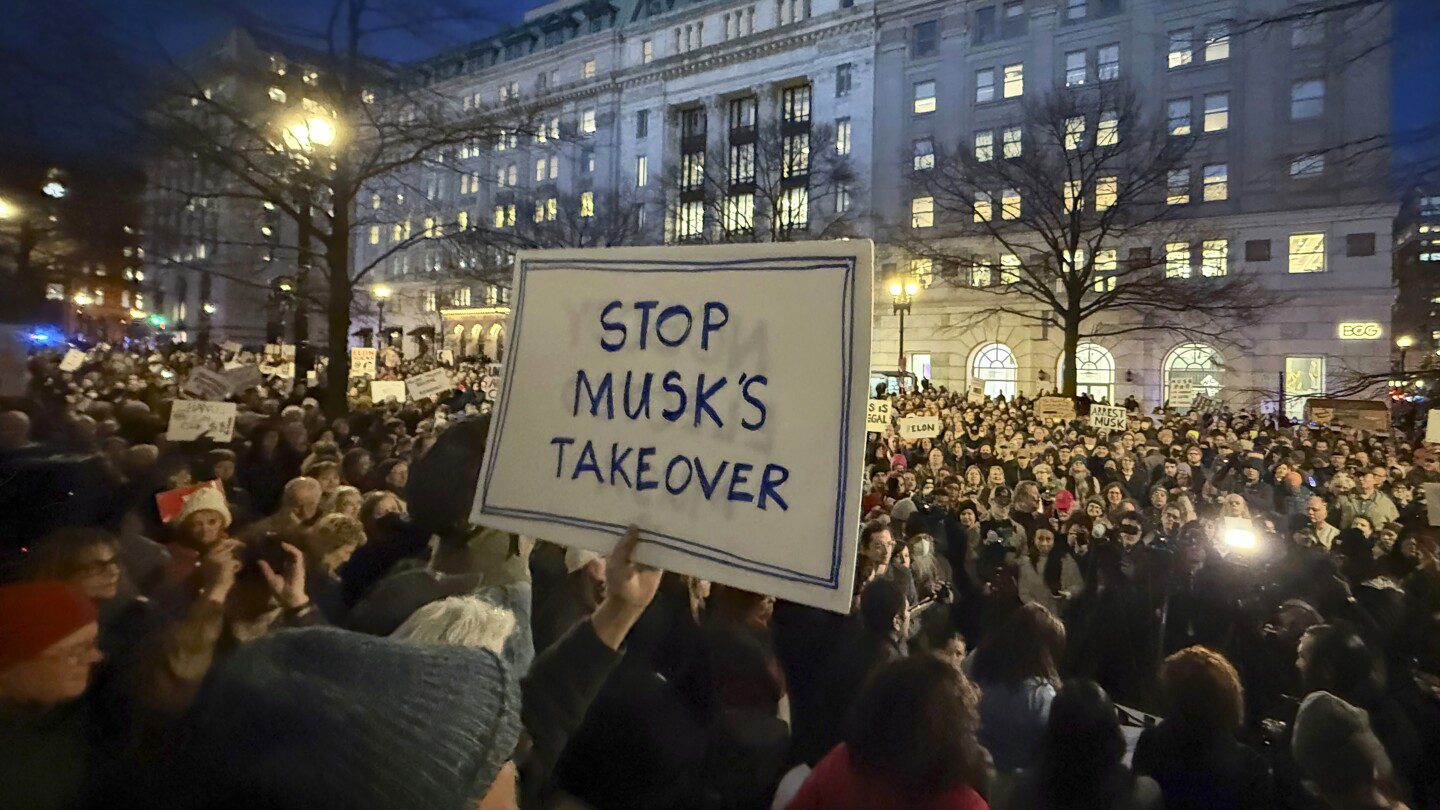
On Friday, the Office of Inspector General for the Treasury Department announced the commencement of an audit focusing on the security measures surrounding the federal payment system. This decision follows concerns raised by Democratic lawmakers regarding the level of access granted to Elon Musk’s Department of Government Efficiency team, which was comprised of former Trump aides.
This audit will also scrutinize transaction records over the past two years, particularly in relation to Musk’s claims of “alleged fraudulent payments,” as outlined in a letter from Loren J. Sciurba, the Treasury’s deputy inspector general, obtained by The Associated Press.
The initiative is part of a broader effort by Democratic legislators and federal employee unions to enhance transparency and accountability in connection with the activities of DOGE during the Trump administration. Musk’s team has been advocating for access to government systems and has proposed the elimination of numerous federal positions.
“We plan to initiate our fieldwork promptly,” Sciurba stated. “Due to the extensive nature of this audit, we anticipate it may not conclude until August. Nevertheless, we acknowledge the potential risks posed by unauthorized access or insufficient safeguards to the integrity of sensitive payment systems. If any critical issues emerge before the audit’s completion, we will provide interim updates and findings.”
The audit was already in motion before the call for it from Democratic lawmakers. A.J. Altemus, the acting counsel for the inspector general, emphasized that “our efforts are initiated independently” and that the audit adheres to standards of non-partisanship and objectivity, which remain unchanged.
Billionaire entrepreneur Musk, who remains at the helm of Tesla, X (formerly Twitter), and SpaceX, claims to be identifying waste, fraud, and misconduct in government processes with the goal of delivering savings for taxpayers. However, many of these assertions lack sufficient evidence. Moreover, there is a concern that the aggressive tactics employed by Musk’s team may lead to disruptions within government IT systems and provide Musk and his associates with opportunities to exploit private government data.
This audit coincides with growing scrutiny placed on inspectors general by the Trump administration—these officials are meant to act as checks against government mismanagement and abuse of power. Earlier this year, a number of independent inspectors general were dismissed by the administration, an action critics in Congress argue violated federal oversight laws. This dismissal has resulted in a federal lawsuit aiming to reinstate these inspectors general.
Senators Elizabeth Warren from Massachusetts and Ron Wyden from Oregon were instrumental in advocating for the inspector general’s inquiry within the Treasury Department.
On Wednesday, Warren, Wyden, along with Senator Jack Reed of Rhode Island, sent a letter to Treasury Secretary Scott Bessent addressing inconsistencies in the information presented by his department regarding DOGE’s access to the payment systems.
The letter stated, “Your lack of transparency about these matters is extremely concerning, given the potential threats to both the economy and the public stemming from DOGE’s interference. It is essential that you deliver a comprehensive and transparent account of who accessed the systems, as well as the purposes behind their actions.”
Democrats on the House Committee on Oversight and Government Reform likewise urged inspectors general to delve into DOGE’s activities and have shown support for the Treasury audit. Rep. Gerry Connolly, D-Va., expressed, “Elon Musk and DOGE should not be permitted to access American citizens’ most sensitive information while operating behind closed doors. This audit is a critical step forward, and it is imperative that inspectors general are allowed to conduct their investigations without obstruction.”
The Treasury Department has offered conflicting accounts regarding DOGE’s authorization of access to the payment systems. Initially claiming that this access was strictly read-only, it later admitted that a DOGE team member had temporary editing capabilities, attributing the error to a misunderstanding in an employee’s sworn statement.
Recently, Marko Elez, the 25-year-old employee who was granted access, resigned after racially charged content on his social media came to light. Musk has since called for his reinstatement, with support from Trump and Vice President JD Vance.
Earlier this week, the Treasury declined to brief key members of the Senate Finance Committee about the ongoing issues surrounding DOGE’s access, citing active legal proceedings.
Numerous advocacy organizations and labor unions have initiated lawsuits concerning DOGE’s potentially unauthorized access to sensitive data within the Treasury Department. Moreover, five former treasury secretaries have raised concerns regarding the risks posed by Musk’s involvement with DOGE.
A federal judge in Manhattan heard arguments on Friday related to a lawsuit filed by Democratic state attorneys general attempting to prevent DOGE from accessing Treasury Department data.
Judge Jeannette Vargas indicated that she would deliver a ruling at a later date, while a temporary restraining order imposed by a preceding judge would remain in effect until then.
Government attorneys contended that both Treasury and DOGE personnel acted within their proper authority. “There was nothing unlawful about the Treasury Department executing the new administration’s priorities with Treasury employees,” stated Jeffrey Oestericher from the U.S. Attorney’s Office for the Southern District of New York. “They were merely performing their lawful functions.”
However, Vargas questioned the government’s assurances of adequate security, highlighting that arrangements were hastily put together within just weeks. “Why such urgency?” she inquired.
Attorneys for the Democratic plaintiffs argued that there was no procedure in place to redact or safeguard private information, asserting that DOGE staff lacked proper training for managing sensitive data.
“States have faced unauthorized access to their banking information,” asserted Andrew Amer from the New York attorney general’s office.
___
Philip Marcelo, a writer for the Associated Press in New York, contributed to this article.
___
Please note this story has been revised to correct the surname of the Treasury deputy inspector general to Sciurba.
___
Stay updated on the U.S. Department of the Treasury by following their coverage at https://apnews.com/hub/us-department-of-the-treasury.









